More About IP > Intellectual Property around the World
Intellectual Property around the World
Priority Date:
After the filing of an application for the registration of a patent, trademark or design in the home country, the IP owner should consider if corresponding applications should be filed to seek protection in other countries. Under the Paris Convention for the protection of Industrial Property (Paris Convention), applications filed in other Paris Convention countries within a specified period can claim the priority date of the home application. This period is 12 months for patents and 6 months for trademarks and industrial designs.
International Registration Systems:
When protection is required in multiple countries, consideration should be given to whether any of the “international registration” systems should be used – the Patent Cooperation Treaty (PCT), the Protocol Relating to the Madrid Agreement Concerning the International Registration of Marks (Madrid Protocol) or the Hague Agreement Concerning the International Registration of Industrial Designs (Hague Agreement).
Each of these systems works differently. Click on the following for a brief description of each.
Patent Cooperation Treaty
Madrid Protocol
Hague Agreement
National Registrations
Where the international registrations systems are not available or chosen, it is possible to file applications with the national IP offices of each of the countries where protection is required. This would typically require the appointment of a local law firm or patent/trademark agency (local agent) to file the application for you. Unless you already know such local agents and are familiar with the local laws and requirements, you can avoid the hassle and sometimes even expensive and fatal pitfalls by appointing an established IP agent in your home country to assist you.
Different countries will have differing filing requirements, formality and/substantive examination processes, timeframe for processing and payment of fees will of course have to be made in the local currency. Post-registration requirements also differ as between the countries. For example, some countries may not require any Power of Attorney or written Authorization to be signed by the Applicant, while others would. There are countries that require several documents not only simply signed, but to be executed before a Notary Public, and some require further Legalization by the Consular Office of the country where the application is to be filed. Some countries allow several versions of a mark to be filed in series in a single application, like in Singapore, but it would be a grave error if you submitted the mark specimen you used in your Singapore application to the IP office of another country where series applications are not permitted. An established IP agent in your home country should be able to manage the differing laws, practice and requirements for you.
Regional Registrations
Some countries have grouped together and have enacted laws for an IP to be protected throughout the region. We summarize in the table below existing regional registration systems wherein ✓ indicates that registration can be obtained in the member countries only by the regional filing, whereas ✓/N indicates that you have the option to file with the national IP office of any of the member countries instead.
| Regional system: | Countries covered: | Trademark | Patent | Design |
| Benelux | Belgium, Luxembourg and the Netherlands | ✓ | NA | ✓ |
| Community Trademark/Design | Austria, Belgium, Bulgaria, Croatia, Cyprus, Czech Republic, Denmark, Estonia, Finland, France, Germany, Greece, Hungary, Ireland, Italy, Latvia, Lithuania, Luxembourg, Malta, Netherlands, Poland, Portugal, Romania, Slovakia, Slovenia, Spain, Sweden, United Kingdom | ✓/N | NA | ✓/N |
| European Patent | Albania, Austria, Belgium, Bulgaria, Croatia, Cyprus, Czech Republic, Denmark, Estonia, Finland, France, Germany, Greece, Hungary, Iceland, Ireland, Italy, Latvia, Liechtenstein, Lithuania, Luxembourg, Macedonia (Former Yugoslav Republic of - ), Malta, Monaco, Netherlands, Norway, Poland, Portugal, Romania, San Marino, Serbia, Slovakia, Slovenia, Spain, Sweden, Switzerland, Turkey, United Kingdom (extensions possible to Bosnia and Herzegovina, and Montenegro, validation possible in Morocco) | NA | ✓/N* | NA |
| ARIPO | Botswana, Gambia, Ghana, Kenya, Lesotho, Malawi, Mozambique, Namibia, Sierra Leone, Liberia, Rwanda, São Tomé and Príncipe, Sudan, Swaziland, Tanzania, Uganda, Zambia and Zimbabwe | ✓/N** | ✓/N | ✓/N |
| OAPI | Benin, Burkina Faso, Cameroon, Central African Republic, Chad, Comoros Islands, Congo, Cote d’Ivoire, Equatorial Guinea, Gabon, Guinea, Guinea Bissau, Mali, Mauritania, Niger, Senegal and Togo | ✓ | ✓ | ✓ |
**trademark filing with ARIPO recognized only in Botswana, Lesotho, Liberia, Malawi, Namibia, Swaziland, Tanzania, Uganda and Zimbabwe
Nothing in this website constitutes legal advice. We make no warranty, whether express or implied, including without limitation warranties as to accuracy, exhaustiveness or fitness for purpose. We disclaim to the fullest extent allowable in law all responsibility for any loss, injury, claim, liability or damage of any kind whatsoever arising from any use or reliance on any matter contained herein.
